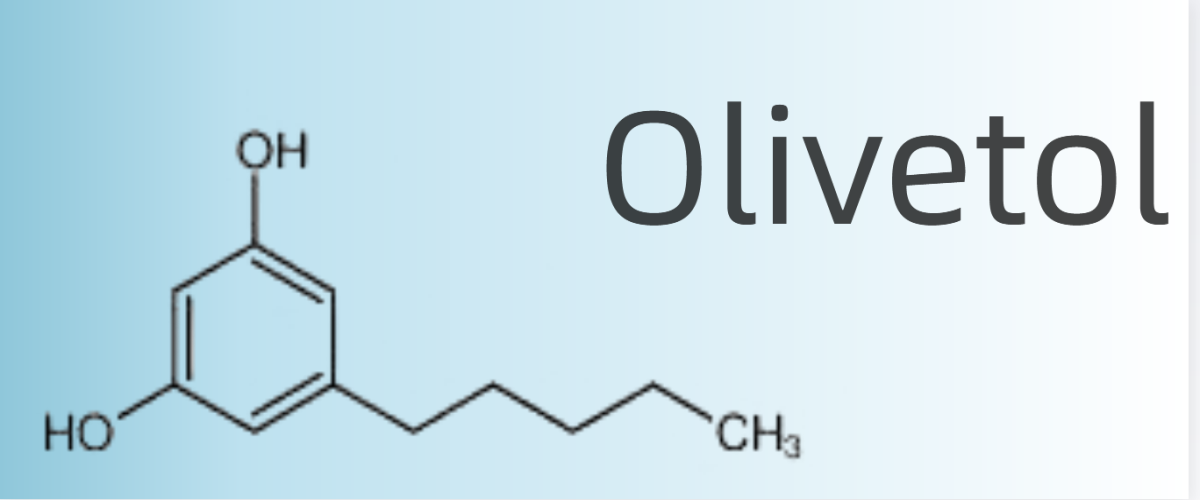Olivetol, a natural compound found in certain plants, has been found to show great promise in fighting inflammation. Its anti-inflammatory and antioxidant properties make it a potential therapeutic tool in the fight against chronic inflammation. Harnessing the power of olivetol may lead to breakthroughs in managing inflammatory diseases and improving overall health, according to several studies.
Olivetol is a naturally occurring organic compound of great importance in the field of chemistry. Found in a variety of plants including cannabis, hops and some types of mosses. Olivetol plays a crucial role in the biosynthesis of cannabinoids, the active compounds responsible for the medicinal and psychoactive properties of cannabis.
Chemically, olivetol is classified as a phenolic compound, structurally related to other important molecules such as catechol and resorcinol. Its molecular formula is C8H10O2, which is composed of benzene rings, and hydroxyl groups and alkyl groups are connected to different positions on the benzene rings. This compound was first isolated from olive oil, hence the name "olivetol".
Olivetol acts as a precursor in the cannabinoid biosynthetic pathway. It is converted to cannabigerolic acid (CBGA), which serves as a starting point for the synthesis of different cannabinoids. Specific enzymes present in specific plant glands then convert CBGA into various cannabinoids, depending on the specific strain of the plant. For example, THC is synthesized from CBGA through further enzymatic conversion.
The discovery that olivetol is involved in cannabinoid synthesis opens new avenues for understanding these compounds and their potential applications. Cannabinoids, such as tetrahydrocannabinol (THC) and cannabidiol (CBD), are known for their therapeutic properties and for their potential use in treating a variety of conditions, including chronic pain, epilepsy and multiple sclerosis received widespread attention.
1. Antioxidant and anti-inflammatory properties
Olivetol is a molecule belonging to the chemical class of phenols, known for its antioxidant properties. Antioxidants are compounds that help protect cells from damage caused by harmful molecules called free radicals. These properties are attributed to the compound's ability to scavenge harmful free radicals and inhibit the production of inflammatory markers in the body. By reducing oxidative stress and inflammation, olive alcohol has the potential to fight chronic diseases like arthritis, cardiovascular disease, and even cancer.
2. Neuroprotective effect
Emerging research suggests that olivetol may have neuroprotective effects, making it a possible therapeutic agent in the field of neurology. Research suggests that olivetol modulates certain neurotransmitter systems in the brain and may have benefits for cognitive health, mood disorders, and neurodegenerative diseases such as Alzheimer's and Parkinson's. While more research is needed, the potential of olivetol in maintaining brain health is indeed promising.
3. Potential anticancer properties
Olivetol has also been found to show promise in the field of cancer research. Several studies have shown the compound's ability to inhibit the growth and proliferation of cancer cells, making it a potential anticancer agent. Although preclinical research is still ongoing, Olivetol's ability to disrupt cancer cell dynamics without harming healthy cells holds promise for the development of novel treatments.
4. Skin health and beauty applications
Due to its antioxidant and anti-inflammatory properties, olivetol also has intriguing potential in skincare and beauty. By neutralizing free radicals and reducing inflammation, olivetol can help prevent premature aging, protect against UV damage, and promote overall skin health. Incorporating olivetol into skin care products may offer a natural and effective solution for those looking for healthier, radiant skin.
5. Environmental impact
In addition to potential human health benefits, olivetol may also have positive environmental impacts. Olivetol is naturally derived from the olive tree and is an environmentally friendly alternative to synthetic compounds commonly used in various industries. By choosing olivetol as an ingredient, you can reduce your environmental footprint while still enjoying its multifunctional benefits.
Learn about CBD:
First, let's understand what CBD is. CBD, short for cannabidiol, is a non-psychoactive compound found in the cannabis plant. It belongs to a group of compounds called cannabinoids that interact with our body's endocannabinoid system.
Benefits of CBD:
It may help relieve stress and improve sleep quality by interacting with receptors in the brain. It is popular for its potential therapeutic benefits, such as pain relief, anxiety reduction, and anti-inflammatory properties. CBD has been extensively researched and is available in many forms including oils, capsules, creams, and edibles.
Role of Olivetol in CBD production:
Olivetol is essential in the production of CBD. It is converted into cannabigerolic acid (CBGA) as a precursor molecule. CBGA then undergoes various enzymatic reactions that ultimately lead to the synthesis of CBD and other cannabinoids.
The importance of Olivetol in the CBD production process cannot be underestimated. It ensures the availability of the building blocks needed to form CBD, ultimately contributing to the potency and benefits of CBD products.
The difference between olive alcohol and CBD:
Despite their connection during biosynthesis, Olivetol and CBD serve different purposes. Olivetol is purely a precursor molecule involved in the synthesis of CBD. It does not have any direct effects on the human body. CBD, on the other hand, is the end product that interacts with our body systems to provide potential therapeutic effects.
Dosage recommendations:
Determining the optimal dose of olivetol can be challenging due to the limited research available. It was recently discovered that there are no standardized dosage recommendations. However, some experts recommend starting with a low dose and gradually increasing the dose based on personal tolerance and desired effects. It is always recommended to consult a healthcare professional before using olive alcohol or any other supplement.
Potential benefits:
Because research on olivetol is still in its preliminary stages, its potential benefits have not yet been established. However, based on its relationship to other cannabinoids, olive alcohol is believed to have anti-inflammatory, analgesic (pain-relieving), and possibly even anti-cancer properties. Future studies may further elucidate its therapeutic applications.
Possible side effects:
As with any supplement, olivetol may have potential side effects, although limited research means that specific side effects are not well documented. It is always recommended to start with a low dose to assess individual tolerance and minimize the risk of adverse effects. Some people may experience mild gastrointestinal distress, drowsiness, or allergic reactions. If you experience any unusual or serious side effects, it is best to discontinue use and consult a healthcare professional.
medicine interactions:
Due to limited data on olivetol-drug interactions, caution is advised if you are taking prescription medications. Consultation with a healthcare professional or pharmacist is essential to avoid potential interactions or complications.
in conclusion:
Olivetol, a natural compound found in plants such as cannabis and olive oil, has broad potential in a variety of therapeutic applications. Although dosage recommendations and side effects have not been established, starting with a low dose and gradually increasing the dose may help assess individual tolerance. As always, it is vital to consult a healthcare professional before incorporating Olivetol or any new supplement into your health routine.
Q: Is Olivetol only derived from cannabis?
A: While Olivetol can be derived from cannabis, it can also be found in various plants such as lichens, liverworts, and some fruits. However, the concentration and availability of Olivetol may differ depending on the source.
Q: Can Olivetol be used topically?
A: Some studies suggest that Olivetol may have potential for topical application due to its anti-inflammatory properties. However, more research is needed to determine its effectiveness and safety for use as a topical treatment.
Disclaimer: This article is for informational purposes only and should not be considered medical advice. Always consult a healthcare professional before using any supplements or changing your healthcare regimen.
Post time: Jul-18-2023







